So, you’re planning a trip to Italy, huh? That’s exciting! But let me ask you something — have you ever found yourself in a new country, trying to order coffee or ask for directions, and suddenly realizing… you don’t know a single word of the local language? Yeah, we’ve all been there.
If you’re a tourist visiting Italy — whether it’s for the art, the food, or just to soak in that romantic atmosphere — knowing how to say simple things like “Buongiorno”or Quanto costa? can make your travel experience way smoother.
So let’s dive into the essential Italian phrases every traveler should know before stepping foot in beautiful Italia!
Why It Matters ✈️
Learning common Italian phrases for tourists isn’t just about communication—it’s about connection. Italians appreciate when travelers make an effort to speak their language, even if it’s just a few words. A simple “Grazie!” (Thank you) can earn you a warm smile and friendlier service.
Knowing a handful of Italian expressions can also save time and reduce travel stress. Imagine missing a train because you didn’t understand an announcement or getting lost because you couldn’t ask for help. With these phrases, you can confidently handle travel situations, order delicious meals, and even make new friends.
In short, these phrases are your passport to smoother adventures and richer cultural experiences in Italy.
💬 Basic Italian Greetings & Politeness
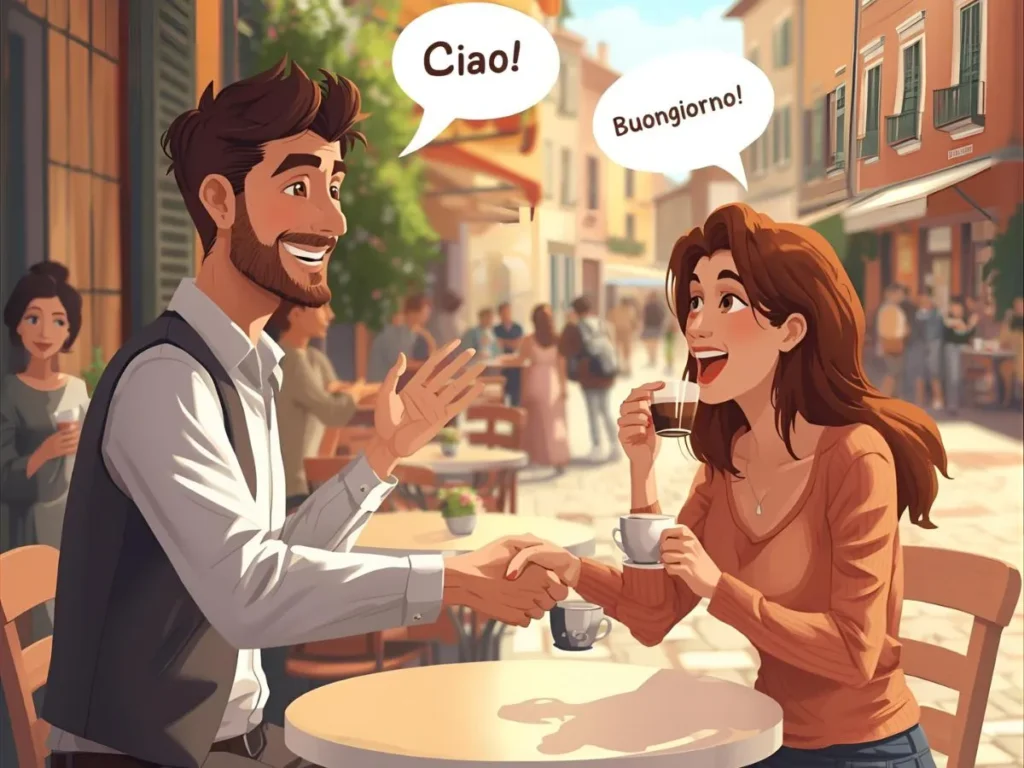
Start every interaction with a smile—and the right greeting! Italians value courtesy, and polite phrases go a long way in daily exchanges.
Ciao! (Hello / Hi)
Explanation: A casual greeting used among friends or in informal settings.
Use When: Greeting someone casually or saying goodbye to friends.
Example: Ciao! Come stai? — Hi! How are you?
Buongiorno (Good morning / Good day)
Explanation: A polite greeting for daytime, used until late afternoon.
Use When: Entering shops, greeting hotel staff, or starting a conversation during the day.
Example: Buongiorno! Vorrei un cappuccino, per favore. — Good morning! I’d like a cappuccino, please.
Buonasera (Good evening)
Explanation: Used in the evening or night as a polite greeting.
Use When: Meeting people after 5 PM or entering restaurants for dinner.
Example: Buonasera! Un tavolo per due, per favore. — Good evening! A table for two, please.
Per favore (Please)
Explanation: A polite way to make requests.
Use When: Asking for help or ordering something.
Example: Un bicchiere d’acqua, per favore. — A glass of water, please.
Grazie / Prego (Thank you / You’re welcome)
Explanation: The essential pair for showing gratitude.
Use When: Saying thanks or responding to someone’s gratitude.
Example: Grazie mille! — Thank you very much!
Prego! — You’re welcome!
🍝 Restaurant & Café Phrases
Italy’s cuisine is world-famous, so you’ll definitely need to know how to order like a local!
Il menù, per favore (The menu, please)
Explanation: A polite way to ask for the menu.
Use When: Sitting down at a restaurant or café.
Example: Il menù, per favore. — The menu, please.
Vorrei… (I would like…)
Explanation: Used when ordering food or drinks.
Use When: Ordering politely without sounding demanding.
Example: Vorrei una pizza margherita, per favore. — I’d like a margherita pizza, please.
Il conto, per favore (The bill, please)
Explanation: How to ask for your check after a meal.
Use When: Finishing a meal at a restaurant.
Example: Il conto, per favore. — The bill, please.
Acqua naturale o frizzante? (Still or sparkling water?)
Explanation: A common question from waiters.
Use When: Ordering water; “naturale” means still, “frizzante” means sparkling.
Example: Acqua naturale, grazie. — Still water, thank you.
È delizioso! (It’s delicious!)
Explanation: Complimenting the food.
Use When: You want to express appreciation to the chef or server.
Example: La pasta è deliziosa! — The pasta is delicious!
🏨 Hotel & Accommodation Phrases
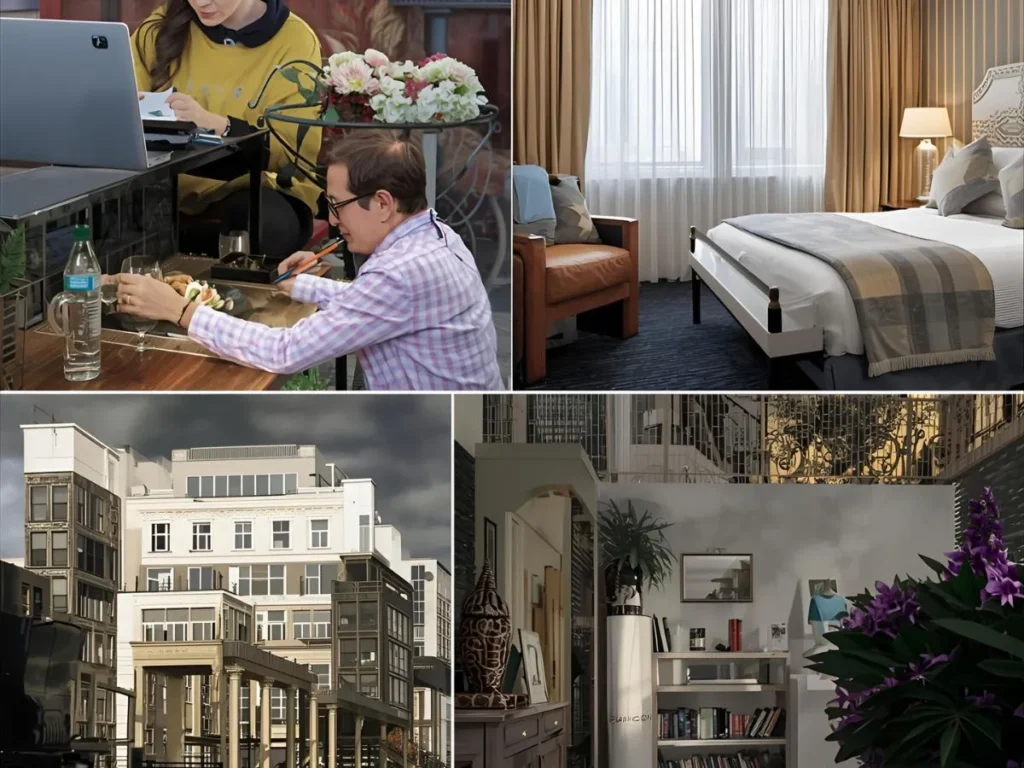
When checking in or staying at a hotel, these phrases make communication easy.
Ho una prenotazione (I have a reservation)
Explanation: Essential for checking into hotels.
Use When: Arriving at your accommodation.
Example: Buonasera, ho una prenotazione a nome di Smith. — Good evening, I have a reservation under the name Smith.
A che ora è la colazione? (What time is breakfast?)
Explanation: Handy when staying at a hotel with breakfast included.
Use When: Checking hotel amenities.
Example: A che ora è la colazione? — What time is breakfast?
Dov’è la mia camera? (Where is my room?)
Explanation: To find your room after check-in.
Use When: Asking hotel staff for directions.
Example: Dov’è la mia camera? — Where is my room?
C’è il Wi-Fi? (Is there Wi-Fi?)
Explanation: Modern travelers always need this!
Use When: Asking about internet access.
Example: C’è il Wi-Fi in camera? — Is there Wi-Fi in the room?
Posso avere un’altra chiave? (Can I have another key?)
Explanation: Useful if you lose or share a key.
Use When: Requesting an extra key at reception.
Example: Posso avere un’altra chiave, per favore? — Can I have another key, please?
🚗 Getting Around & Directions
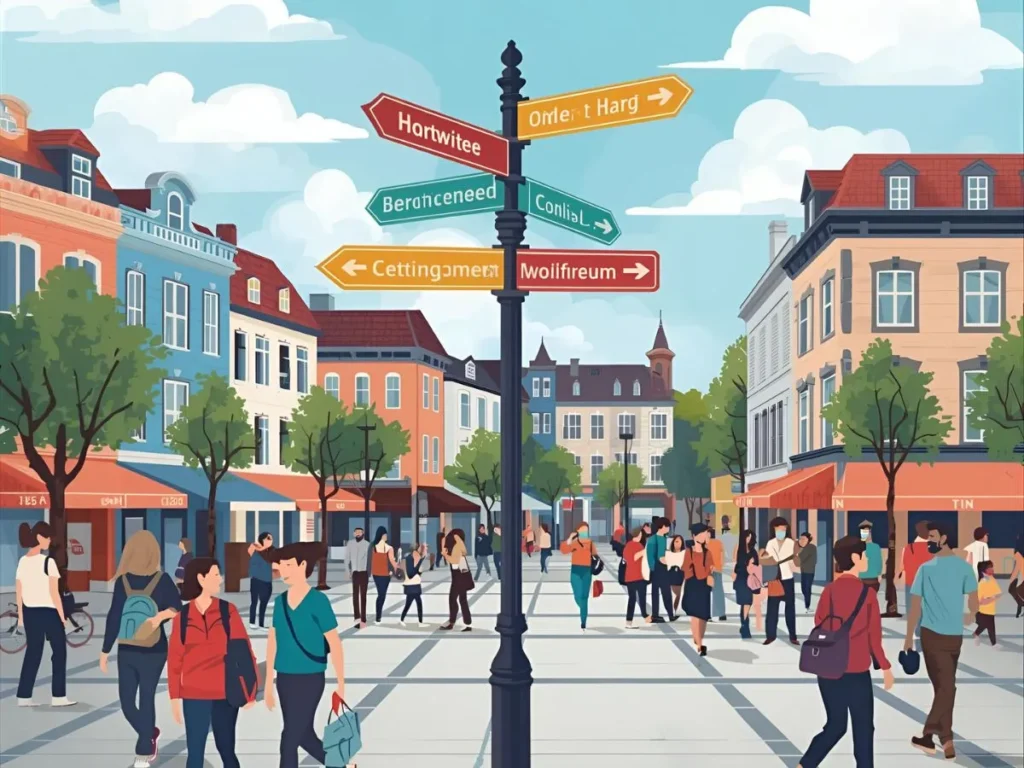
Don’t get lost in translation—use these phrases to navigate confidently!
Dov’è…? (Where is…?)
Explanation: Perfect for asking directions.
Use When: Looking for landmarks, stations, or restrooms.
Example: Dov’è la stazione? — Where is the train station?
A sinistra / A destra (To the left / To the right)
Explanation: Simple directional words to understand locals’ replies.
Use When: Following directions or guiding a taxi.
Example: Gira a destra! — Turn right!
Quanto costa il biglietto? (How much is the ticket?)
Explanation: Useful for buying tickets for buses, trains, or attractions.
Use When: At ticket counters or kiosks.
Example: Quanto costa il biglietto per Roma? — How much is the ticket to Rome?
Mi sono perso / persa (I’m lost)
Explanation: Important if you can’t find your way.
Use When: Asking locals for help when lost.
Example: Mi sono perso. Può aiutarmi? — I’m lost. Can you help me?
Può chiamare un taxi, per favore? (Can you call a taxi, please?)
Explanation: A lifesaver if you need quick transport.
Use When: Asking hotel or restaurant staff to arrange transport.
Example: Può chiamare un taxi, per favore? — Can you call a taxi, please?
🛍️ Shopping & Markets
Shopping in Italy is a joy—especially when you can chat with vendors!
Quanto costa? (How much does it cost?)
Explanation: The most essential phrase when buying something.
Use When: Asking about prices in markets or shops.
Example: Quanto costa questa borsa? — How much does this bag cost?
Posso provarlo? (Can I try it on?)
Explanation: Perfect when shopping for clothes.
Use When: Asking to try an item before buying.
Example: Posso provarlo, per favore? — Can I try it on, please?
È troppo caro! (It’s too expensive!)
Explanation: Used when negotiating prices.
Use When: Bargaining at local markets.
Example: È troppo caro! Mi può fare uno sconto? — It’s too expensive! Can you give me a discount?
Accettate carte di credito? (Do you accept credit cards?)
Explanation: Handy to know before paying.
Use When: Checking payment options.
Example: Accettate carte di credito? — Do you accept credit cards?
Lo prendo! (I’ll take it!)
Explanation: When you’ve decided to buy something.
Use When: Finalizing a purchase.
Example: Va bene, lo prendo! — Okay, I’ll take it!
🆘 Emergency & Health Phrases
In case of emergency, these phrases can help you get assistance quickly.
Aiuto! (Help!)
Explanation: The most important word to shout in an emergency.
Use When: In dangerous or urgent situations.
Example: Aiuto! Mi serve un medico! — Help! I need a doctor!
Dove si trova l’ospedale? (Where is the hospital?)
Explanation: Essential in health emergencies.
Use When: Asking for directions to medical help.
Example: Dove si trova l’ospedale più vicino? — Where is the nearest hospital?
Non mi sento bene (I don’t feel well)
Explanation: When you’re feeling sick or dizzy.
Use When: Talking to hotel staff or medical personnel.
Example: Non mi sento bene. Può aiutarmi? — I don’t feel well. Can you help me?
Chiamate un dottore, per favore (Call a doctor, please)
Explanation: Use if someone needs medical attention.
Use When: In an emergency situation.
Example: Chiamate un dottore, per favore! — Call a doctor, please!
Ho perso il mio passaporto (I lost my passport)
Explanation: Very important if documents go missing.
Use When: Reporting to police or embassy staff.
Example: Ho perso il mio passaporto, cosa devo fare? — I lost my passport, what should I do?
🗂️ Bonus Recap Table
| Category | Example Phrase | English Meaning | Use When |
|---|---|---|---|
| Greetings | Ciao! | Hello / Hi | Meeting someone casually |
| Restaurant | Il conto, per favore | The bill, please | After finishing a meal |
| Hotel | Ho una prenotazione | I have a reservation | At check-in |
| Directions | Dov’è la stazione? | Where is the station? | Asking directions |
| Shopping | Quanto costa? | How much does it cost? | In shops or markets |
| Emergency | Aiuto! | Help! | In emergencies |
🎯 Final Thoughts
Traveling to Italy becomes much easier (and way more fun!) when you know the common Italian phrases for tourists.
A few simple words can open doors, create smiles, and help you explore with confidence.
Practice these phrases before your trip, use them daily, and don’t worry about sounding perfect—Italians love when visitors try! So, pack your enthusiasm, your sense of adventure, and a handful of these expressions.
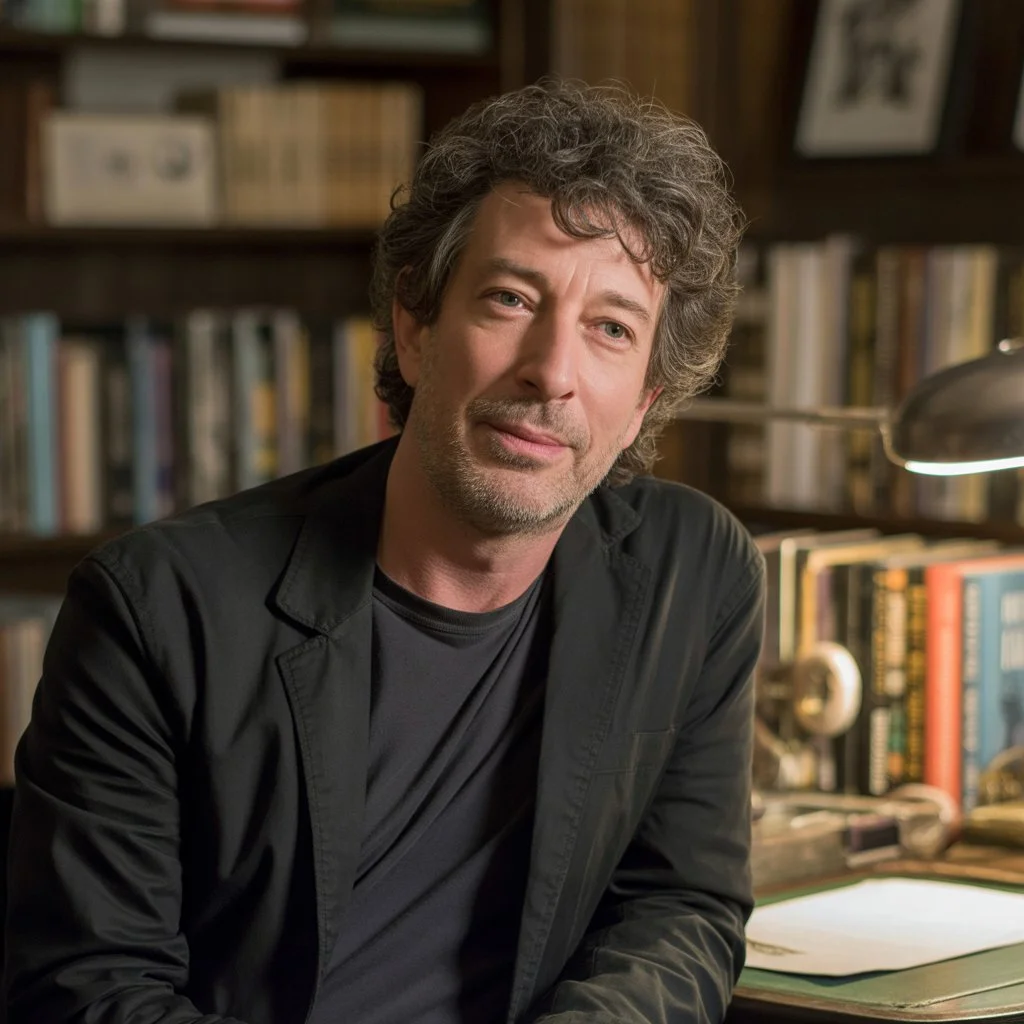
QuicklyReply helps you master real-life communication with ready-to-use English phrases for work, travel, and daily life—perfect for teachers, learners, and professionals seeking quick, natural expressions.
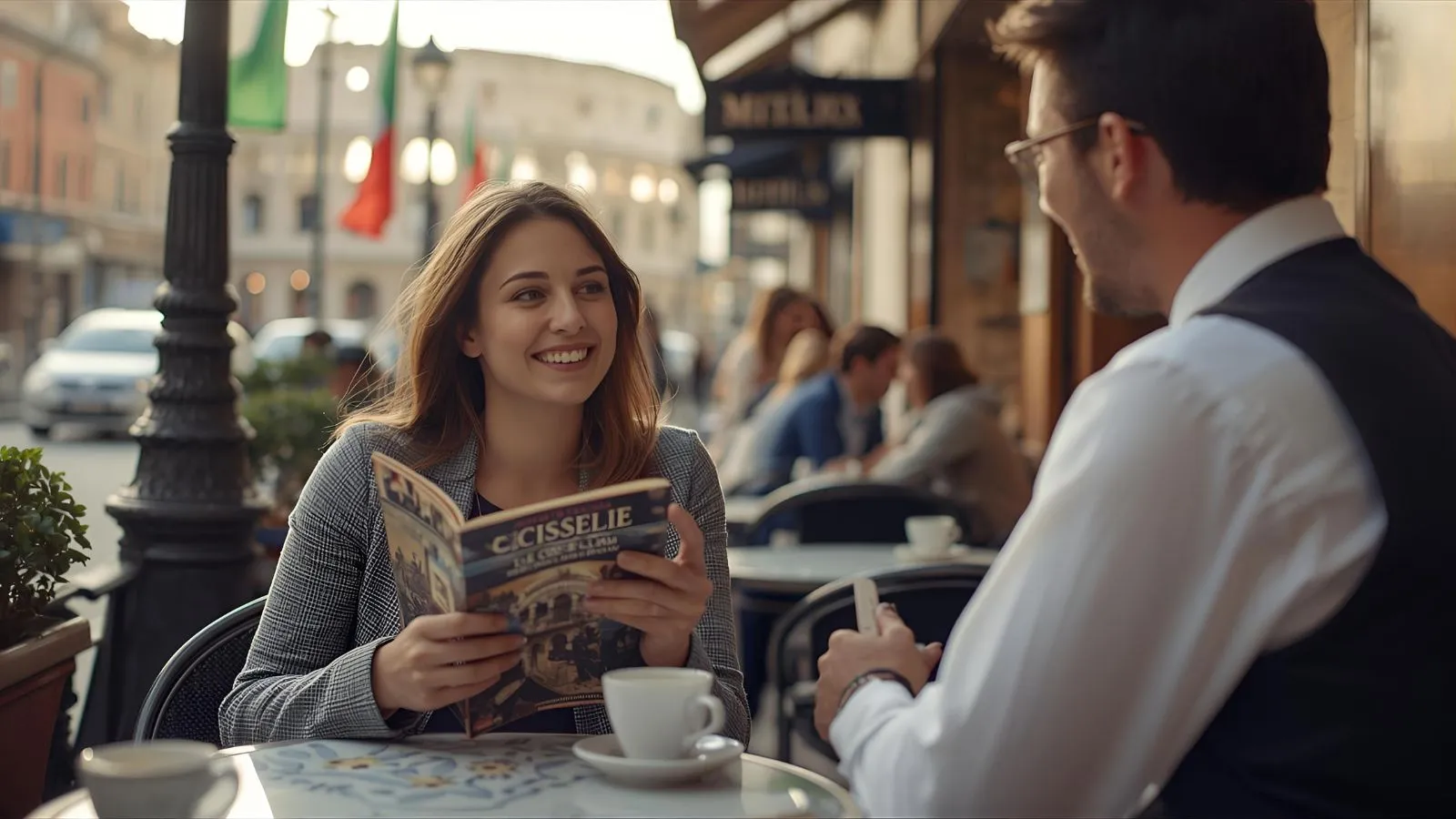
Leave a Reply